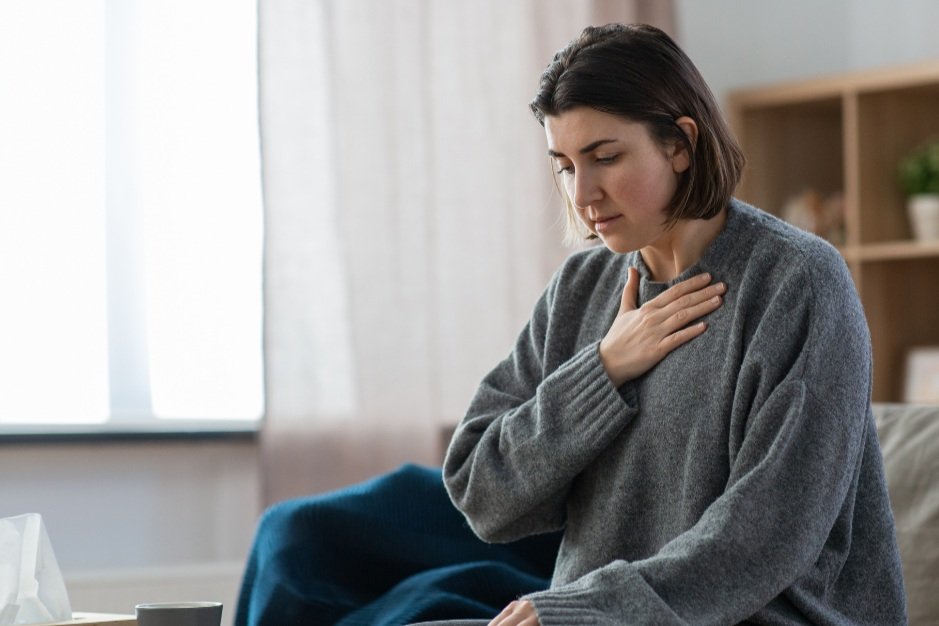The Fine Line: Distinguishing between Anxiety and Trauma
By Melody Wright, LMFT
When talking about mental health with others, you might notice that some of the signs and symptoms of Anxiety and Trauma may sound very familiar despite stemming from different events or diagnoses. For individuals wanting to learn more about their own mental health, or experiencing symptoms that may be related to anxiety or trauma, it can be very helpful to understand where their current symptoms stem from. This can help us seek and identify resources that will help us address our symptoms, as well as learn new ways to regulate ourselves when we feel overwhelmed or on edge.
What is Trauma?
The American Psychological Association defines trauma as an “emotional response to a terrible event” such as abuse, community violence, or experiencing significant injury or loss. The symptoms we exhibit after experiencing trauma are directly related to events that happened in our past that did not make us feel safe or put us directly in the middle of unsafe situations. Some of the symptoms that people exhibit after experiencing trauma can include fatigue, feeling sad, and hopeless, experiencing mood swings, and withdrawing from others. Some symptoms can be more severe and can have long-term impacts on an individual, including experiencing consistent flashbacks to a traumatic event, developing panic attacks, sleep problems, or anxiety (also known as Generalized Anxiety Disorder).
What is Anxiety?
Anxiety can be described as consistent and intense worrying over everyday situations, usually situations that have not yet happened yet. Anxiety sends a message to our brain that we need to do more to prepare for a possible, or upcoming, future event. Some of the physical symptoms that someone can experience when feeling anxious include a fast heart rate, sweating, and rapid breathing. While the causes of anxiety can vary, many people experience anxiety as a result of going through traumatic childhoods or events.
What Do Anxious Behaviors Look Like?
While anxious behaviors can serve a purpose when they function as part of our body’s defense mechanisms (fight, flight, freeze, etc.), they can create an issue when they occur consistently and at the wrong times. Anxious behaviors can include the following:
Ongoing feelings of nervousness, restlessness, or feeling “on-edge”
Feeling irritable
Experiencing headaches, stomach pains, or other unexplained pains
Difficulty concentrating or falling/staying asleep
What Do Trauma Responses Look Like?
Traumatic responses are your body’s reaction to trauma. They can include the following:
Inability to focus or make decisions
The need to feel guarded or alert at all times
Flashbacks or constant thoughts of a previous traumatic event
Being easily startled in settings or situations that do not require you to be on high alert
As you can see from the descriptions and symptoms above, traumatic responses and anxious behaviors can feel similar in the body. The difference between a trauma response and an anxious behavior is where the symptoms are stemming from. Are the symptoms stemming from past events that your body identified as traumatic? Or are they stemming from concerns about future events or events that have not yet taken place (anxiety)? It is also important to know that trauma and anxiety may be connected for some individuals; One can develop anxious behaviors after experiencing traumatic events.
What Can I Do?
Whether you experience anxious behaviors or trauma responses, it can feel overwhelming to see the impact they can create in our bodies. Know that you are not alone in feeling this way; 1 in 5 people experience anxiety in their lifetime, and 50-60% of people experience at least 1 traumatic event in their lives. Steps toward healing the body can be taken by learning how to regulate ourselves when we start to feel nervous, anxious, fearful, or on edge.
If you find yourself needing support to learn new skills to help you regulate, help address past trauma, or you’re interested in learning more strategies to combat your anxious thoughts, we encourage you to book a phone consultation today at Life by Design. Life by Design offers therapeutic services with qualified professionals that can give you the tools you need to help address your traumatic responses and anxious behaviors. Book a phone consultation here today for more information and to get you connected to additional support.



